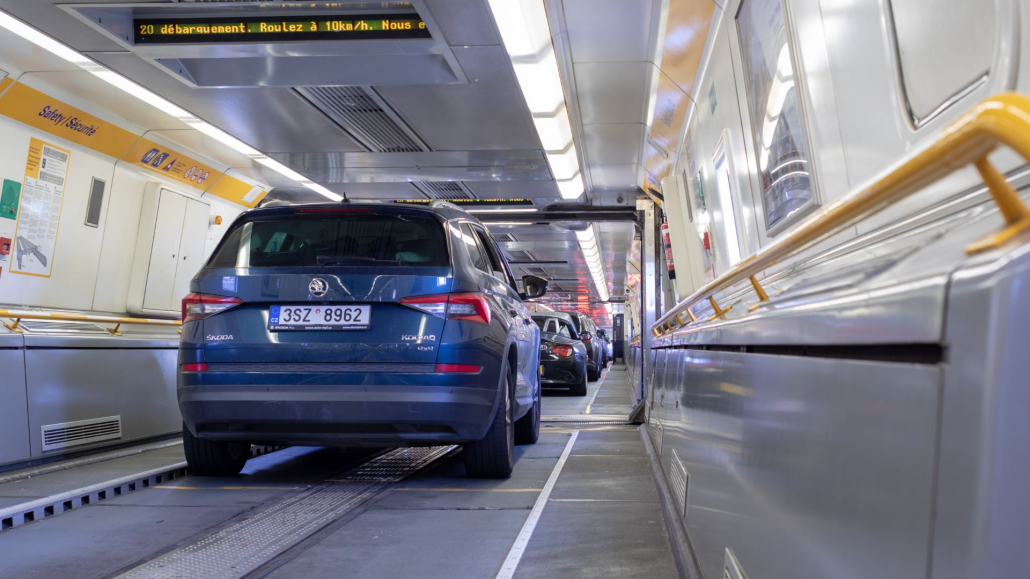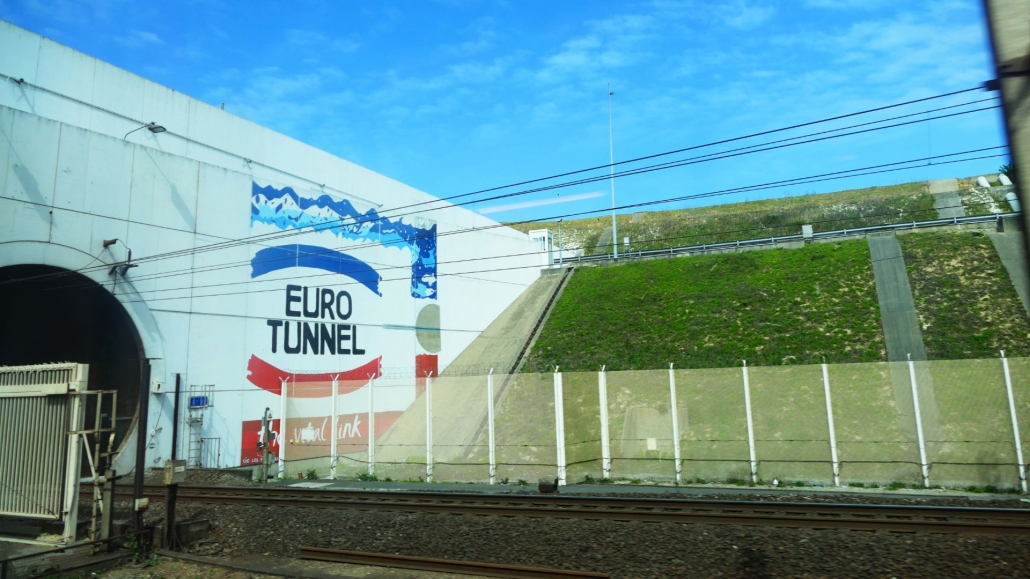
Going on a summer holiday to France – or further into Europe? The Eurotunnel Le Shuttle train is the quickest way to cross the English Channel.
You’ll need to allow extra time for post-Brexit passport checks, but once on board, the train takes just 35 minutes to get from Folkestone to Calais.
The Eurotunnel is also convenient. Buy an appropriate ticket and you can arrive at any time, then board the next available train. There is quick access to the motorway network when you drive off the train in France, too.
Here, we reveal some of the things you need to know when using the Eurotunnel Le Shuttle. For the latest information, check out the official Eurotunnel Le Shuttle Twitter feed.
How to buy Eurotunnel tickets

Tickets cost from £87 per car for a single crossing, although this is based on staying for five days or fewer. A standard ticket is £110 each way, or £150 if you choose the refundable option.
If you can afford it, we recommend the Flexiplus ticket (from £209). This gives you the flexibility to travel at short notice and with minimal delays.
A Flexiplus ticket is a little like an upgraded flight ticket. Travellers are treated to a dedicated check-in, access to an exclusive lounge and complimentary refreshments, magazines and newspapers.
This guide will enable you to choose the best ticket:
- Short Stay Saver: from £87 per car, each way. Five days or fewer. Must be purchased as part of a return journey.
- Standard: from £110 per car, each way. Single or return.
- Standard Refundable: from £150 per car, each way. Single or return. Can be refunded if your plans change.
- Short Stay Flexiplus: from £209 per car, each way. Five days or fewer. Return ticket.
- Flexiplus: from £269 per car, each way. Any duration. Single or return.
The quickest way to book a ticket is to use the Eurotunnel website. You can also telephone 0344 335 3535 to make a reservation. The lines are open Monday to Friday from 8am to 7pm, and weekends from 9am to 5.30pm.
Arriving at the Eurotunnel
Whether you’re arriving at the Eurotunnel terminal in Folkestone or Calais, you should check-in at least 45 minutes and no more than two hours before your booked departure time. You’ll need your booking reference number and credit or debit card used to make the booking.
- At Folkestone, take junction 11a off the M20 and proceed to the check-in booths.
- At Calais, exit the A16 at junction 42 and follow the ‘Tunnel sous la Manche’ signs to the check-in booths.
If you have made a booking in advance, you can proceed to the self-check-in lanes. Simply insert your payment card into the machine and follow the instructions. Either way, you’ll be given a departure hanger for your car’s windscreen.
Boarding the Le Shuttle train

Once you have checked in, you are free to use the passenger terminal. Here, you will find shops, restaurants, toilets and baby changing facilities.
Next, drive to the British and French frontier controls where your passport, vehicle and official documentation will be checked.
Boarding commences 25 minutes before your scheduled departure time. Check the screens and listen for announcements, before following the arrows to your allocated boarding lane.
Vehicle types on the Eurotunnel Le Shuttle
The following vehicle types are permitted on the Eurotunnel:
- Cars
- Motorcycles
- High vehicles, vans and minibuses
- Caravans, campervans and trailers
- Electric cars
- Coaches
- Bicycles
Most cars will be directed to the double-deck trains, which are suitable for vehicles less than 1.85 metres in height. Taller, wider and longer vehicles, plus those towing a caravan or trailer, will be directed to the single-deck trains.
Once you have boarded Le Shuttle, you’re free to leave the vehicle. There are toilets on board, but smoking is not permitted.
Are there electric car charging points at the Eurotunnel?
You will find electric car chargers in both Folkestone and Calais. However, Eurotunnel notes that: ‘Customers with vehicles that require a Type 2 plug must be in possession of and use their own charging cable. None are provided or available on the terminal’.
There are also dedicated Tesla Superchargers – with those at Folkestone open to other (non-Tesla) cars with CCS compatibility as part of a pilot scheme.
Eurotunnel: other things to remember
There are up to four departures an hour, and the price of a ticket covers a car and up to nine passengers. There are also no baggage restrictions.
For more information, including details about travelling with a pet, fuel types and duty-free shopping, visit the Eurotunnel website. Don’t forget your passport and a new ‘UK’ sticker.
ALSO READ:
How to keep cool when driving in a heatwave
Towing a caravan, trailer or another car safely: what you need to know